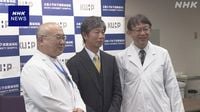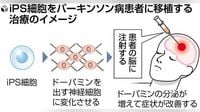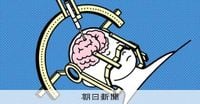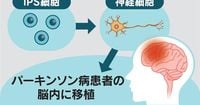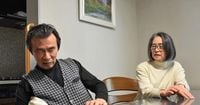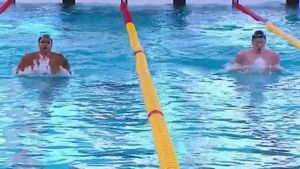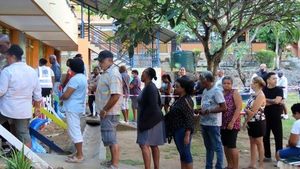Kyoto University's research team has made significant strides in the treatment of Parkinson's disease through a recent clinical trial involving induced pluripotent stem (iPS) cells. The trial, which was conducted at Kyoto University Hospital, demonstrated the safety and efficacy of transplanting neural cells derived from iPS cells into the brains of seven patients suffering from this debilitating neurological disorder. The results, announced on April 17, 2025, have generated a wave of hope among patients and their families, although concerns about the limited number of cases remain.
Parkinson's disease affects approximately 250,000 people in Japan and is characterized by the loss of dopamine-producing nerve cells in the brain, leading to tremors, stiffness, and difficulty in movement. Current treatments primarily focus on alleviating symptoms rather than addressing the root cause, leaving many patients yearning for a more effective solution.
The clinical trial involved seven participants aged between 50 and 69, all of whom exhibited symptoms such as a propensity to fall and inadequate response to medication. Over the course of the trial, which began in 2018 and concluded in 2023, the research team, led by Professor Jun Takahashi of the Kyoto University iPS Cell Research Institute, transplanted between five million to ten million neural cells into each patient using a specialized injection technique. The cells were created from healthy third-party iPS cells and were administered alongside immunosuppressants to minimize the risk of rejection.
Results from the trial were promising: no major adverse effects were reported among the patients, and four out of the six participants who were evaluated for efficacy showed improvement in their symptoms. Some patients even reported that they no longer required assistance with daily activities, and one individual was able to live without a wheelchair for a period of time. These findings were published in the British scientific journal Nature on April 16, 2025.
Kazuhiko Yoshioka, a 66-year-old vice-chairman of the Kyoto branch of the National Parkinson's Disease Patients Association, expressed his excitement about the trial's results. "If there is any hope for improvement, I would like to receive treatment," he stated. His wife, Megumi, echoed his sentiments, saying, "If treatment becomes available, it will feel like a long-awaited dream come true." Yoshioka, who was diagnosed with Parkinson's disease at 42, has faced numerous challenges since his diagnosis, including the need to conceal his illness from his family and employer.
Despite the optimism surrounding the trial, some patients and their families remain cautious. A 68-year-old female patient shared her concerns about the small sample size of the trial, stating, "I feel more anxiety than hope." Having been diagnosed at 52, she currently takes medication six times a day, but has noticed that its effects wear off after about an hour and a half, leading to increased stiffness.
Experts are cautiously optimistic about the potential of this new treatment. Nobuhito Abe, a specially appointed professor at Juntendo University, remarked, "This could be great news for patients, as it may represent a new treatment option. If established, this method could reduce the number of medications needed or even eliminate them altogether, thereby improving patients' quality of life." However, he also noted that not all patients experienced dramatic improvements, emphasizing the need for further research to identify which individuals might benefit most from this therapy.
Sumitomo Pharma, the pharmaceutical company collaborating with Kyoto University on this project, plans to apply for manufacturing and sales approval for the iPS cell-derived product within the fiscal year. If approved, this would mark the second regenerative medicine product to utilize iPS cells, following a myocardial sheet developed by an Osaka University venture.
While the results of the trial are encouraging, they also highlight the complexities of treating Parkinson's disease. The condition varies widely among patients, and the progression of symptoms can differ significantly from one individual to another. Yoshioka, who has been visiting Kyoto University Hospital for over a decade, shared his personal struggles with the disease, stating, "The fear of the unknown is always lurking. Parkinson's disease is not a terminal illness, but the journey is fraught with uncertainty and challenges."
In light of these findings, Takahashi has expressed a commitment to advancing research and improving treatment options for Parkinson's disease patients. "We have seen a direction for optimal dosages and which patients may benefit, and I believe this is a significant result," he said. As the research progresses, there is hope that cell transplantation could one day provide sufficient dopamine levels to eliminate the need for medication altogether.
As the medical community continues to explore the potential of iPS cells in treating various conditions, the results of this trial may pave the way for groundbreaking advancements in regenerative medicine. With ongoing research and development, the dream of a more effective treatment for Parkinson's disease may soon become a reality.
